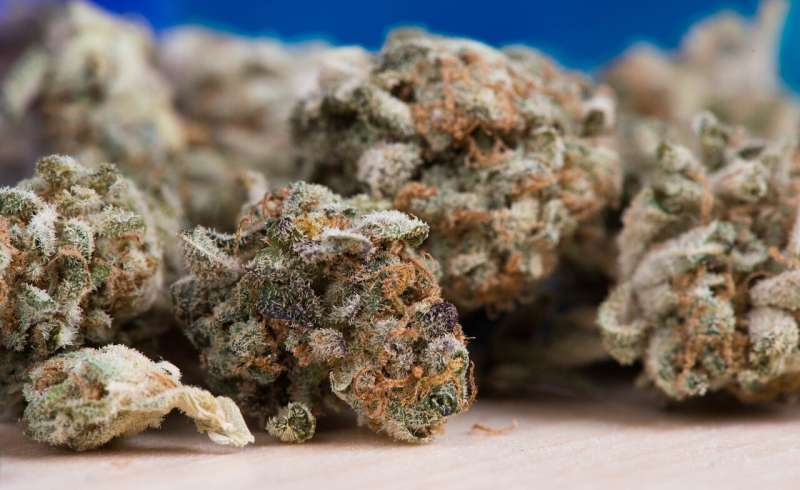Ask the Pediatrician: How can parents prevent children from ingesting edibles?


Q: Marijuana is legal in our state, and I want to be sure my kids don’t take any edibles. What are the best ways to prevent that?
A: Marijuana (cannabis) is now legal for medical and recreational use in many U.S. states. That means the availability of tempting treats that contain tetrahydrocannabinol (THC), the psychoactive ingredient in marijuana, is on the rise. Unfortunately, so is the accidental THC poisoning risk these products pose to kids who get ahold of them.
Marijuana can be dangerous in all forms for children and adolescents, both in the short term and the long term. That’s why it’s important for parents to understand how much THC is in edible products and how THC is absorbed in the body. Parents also need to know how to keep kids safe.
Edible marijuana products often look just like regular sweet treats. Some popular THC-infused products include gummies, chocolate bars, lollipops, brownies and cookies.
Despite their ordinary appearance, just one pot cookie or candy bar can contain several times the recommended adult dose of THC. Anyone who eats an entire THC edible—especially a child—can experience overdose effects such as:
- Intoxication
- Altered perception
- Anxiety
- Panic
- Paranoia
- Dizziness
- Weakness
- Slurred speech
- Poor coordination
- Excessive sleepiness
- Apnea (not breathing for 10 seconds or longer)
- Heart problems
For teens, regular marijuana use can impair memory and concentration and may interfere with learning. Regular use of marijuana is also linked to psychological problems and poorer lung health. Even using marijuana one time can alter motor control, coordination and judgment, which can contribute to unintentional deaths and injuries.
Edible THC products take longer than smoked marijuana to have an effect. An edible typically takes effect about 30 to 60 minutes after being eaten and digested.
Someone experimenting with THC edibles might not feel the effects as quickly as expected.
They might ingest large amounts to try to get high. This leads to overdosing.
THC food products often closely resemble popular brand name candy and snacks. The packaging may be nearly identical, with the name slightly changed (think KeefKat or Pot Tart).
Some states now require products that contain marijuana to have clear labeling with standardized serving sizes and THC content. Some states require child-proof packaging.
But a study published in JAMA Pediatrics looked at unintentional exposures to marijuana in Colorado and found that packaging regulations like these aren’t enough to keep kids safe.
Accidental THC poisoning cases in children under age nine continued to increase after Colorado legalized marijuana use, even with packaging regulations. Edible THC products were involved in more than half the cases.
To keep edibles out of children’s hands:
- Store them safely. If there are marijuana edibles in your home, store them the same way you would store medications and other potentially toxic products. Make sure the products are in out-of-reach or locked locations. They should also be in child-resistant packaging or containers. Clearly label marijuana edibles and store them in their original packaging.
- Use with caution. Never consume marijuana edibles in front of children, either for medical or recreational purposes. Seeing the products could create temptation for kids. Using them may also impair your ability to provide a safe environment. You shouldn’t drive if you’ve consumed edible marijuana products, especially with kids in the vehicle. THC use can lessen your reaction times.
- Avoid buying THC edibles that come in packages that look like real candies. And be sure to put them back in an out-of-reach location immediately after use.
- Talk to family members, friends and caregivers. In the Colorado study mentioned above, sources of the accidental marijuana exposure were most often a parent. But grandparents, other family members, neighbors, friends and babysitters were also sources. Ask anyone whose home your children spend time in if they use marijuana edibles. If a relative, friend or caregiver does, make sure they store them safely. Be sure that they don’t use them in front of your children or while watching them.
If your child eats a marijuana edible by accident, try to find out what and how much they ate. Look at the edible’s wrapper to see how much THC it contains. Call the free poison control hotline—1-800-222-1222—as soon as possible for fast help. If your child’s symptoms seem severe, call 911 or go to an emergency room right away.
Source: Read Full Article